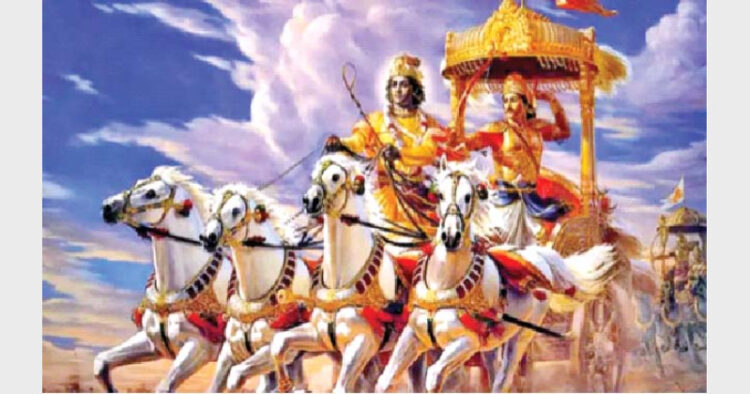In my business career spanning three decades, I have found that the core of success lies in human qualities, all of which are rooted to a great degree, in mastery over the self. External victories are subordinate to and a byproduct of managing the self. My experiments with this locus of leadership have repeatedly pointed to timeless wisdom of human experience, arising from the accumulated thought of the learned and the judicious, propositions that have been tested both objectively and subjectively, what we often recognise as religious philosophy. A quick look at the world around us highlights the dichotomy that religion, a source of morality, kindness and community, can also be a source of dishonor, acrimony, and upheaval. Mix religion with individuality, you get light. Mix it with politics, you risk a fire. At its core, religion is philosophy. It weaves humanity’s common threads. At the periphery, religions exhibit differences of history, place and culture. Judaism’s origin is in the Bronze Age as an ancient Semitic religion. Hinduism was an agrarian religion.
Relevance of Religion
Christianity became a faith of the underprivileged. Islam bloomed amongst desert tribes. Sometimes, these cultural manifestations become difficult to reconcile. But the underlying philosophical essence – kindness, reciprocity, truth – is overwhelmingly similar. Is religion relevant today? Lebanese-American thinker Nassim Taleb’s concept of Lindy’s Effect captures this best: Ideas that have been around for a long time indicate robustness. Over centuries, societies have found tremendous value in religion. Even though rationality cannot fully decipher its appeal, it’s here to stay. As the old saying goes: “I used to be religious but then I grew out of it”. I discovered myself as a cultural Hindu, a philosophical deist, who found Greek Stoicism,Protestant values, and portions of Zen, Jewish and Islamic wisdom intellectually and emotionally appealing. Below are some learnings from Hindu philosophy and their salience in the modern world.
A survey of ancient Indian texts, well captured in Nobel laureate Amartya Sen’s The Argumentative Indian shows that in 2nd century BC – Hinduism's golden period – atheism and deism were common. Atheism rejected God. Deism rejected organised religion as the link between man and God. Hinduism offers optionality. A child believes that his father can solve everything. The same child, as a teenager, thinks his father can solve absolutely nothing. By the time he becomes an adult, he forms a balanced view and the conviction that his father can guide on many issues. The story of man’s relationship with God is similar. When one can have a divine parent looking out for you, why be an orphan?
Versatility as Leadership
The Ramayana is one of Hinduism's two great epics. Its opening verse defines leadership accurately. The sage Valmiki asks the worldly Narada whether there exists a perfect man: someone with heroic qualities, well versed in the duties of life, grateful, truthful, firm in his vows, an actor of many parts, benevolent, learned, eloquent, patient, slow to anger, truly great, free of envy, yet can cause terror when excited to wrath. This description relates well to Harvard psychologist Howard Gardner’s “Theory of Multiple Intelligences”, which enumerates that in contemporary society, such versatility is a defining characteristic of people who reach the pinnacle.
The Law of Dutiful Action
Hindu philosophy believes that beyond a point, an external focus clutters the mind, adds stress and is ultimately limiting. An internal focus channelises energy, promotes a growth mindset and shields us from the effects of randomness. All super-achievers demonstrate this inherent capability. Michael Jordan – widely acclaimed as thegreatest basketball player of all time – embodied this perfectly when he claimed: “I’ve missed more than 9,000 shots in my career. I’ve lost almost 300 games. Twenty six times, I’ve been trusted to take the game winning shot and missed. I’ve failed over and over and over again in my life. And that is why I succeed.”
Luck as Cause and Effect
The Upanishads are 200-odd manuscripts, crowdsourced over centuries, signifying the intellectual humility of the masters. Arthur Schopenhauer, amongst the first Western thinkers affirm tenets of Eastern philosophy, titled them “The highest Human Wisdom”. My favourite quote from the Upanishads, “You are what your deep, driving desire is. As your desire is, so is your will. As your will is, so is your deed. As your deed is, so is your destiny.” This is the best definition of luck I have encountered. It conceives fate as somewhat deterministic. It celebrates the human spirit. When Ralph Waldo Emerson, champion of Transcendentalism in 19th century America said, “Shallow men believe in luck; strong men believe in cause and effect”, he meant the same. Today, when venture capitalists evaluate management teams of early stage investments, in the face of intense competitive uncertainty, this innate “deep, driving desire” is what they look for.
Technology of Brain
Meditation is synonymous with Eastern religious traditions. The oldest evidence of meditation is Indian wall art from 5,000 BC. Meditation declutters the mind, provides In The Gita, another seminal text, Krishna prescribes dutiful action: simply doing one’s duty diligently, not overly attached to actions and not inordinately motivated by results, because action is in one’s hands, the results are not. This insight draws on the fact that no progress is linear. Riding cyclicality – in world affairs and within personal circumstances – is a key aspect of success. Staying in the game fully is a competitive edge.














Comments